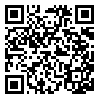Volume 6, Issue 2 (3-2025)
مطالعات فقه و حقوق رسانه 2025, 6(2): 336-313 |
Back to browse issues page
Download citation:
BibTeX | RIS | EndNote | Medlars | ProCite | Reference Manager | RefWorks
Send citation to:



BibTeX | RIS | EndNote | Medlars | ProCite | Reference Manager | RefWorks
Send citation to:
Asgari A H. The right to participation of people with disabilities in E-Sports and the challenge of doping: balancing fairness and equality. مطالعات فقه و حقوق رسانه 2025; 6 (2) : 11
URL: http://journal.refah.ac.ir/article-1-145-en.html
URL: http://journal.refah.ac.ir/article-1-145-en.html
Alborz Campus of the University of Tehran, Tehran, Iran
Abstract: (30 Views)
As an emerging industry, E-sports is growing rapidly, with revenues projected to reach $5.7 billion by 2028. As the industry expands, people with disabilities have also found more opportunities to participate in these competitions. The use of adaptive equipment to improve their physical and cognitive abilities has helped them participate in e-sports, but this has faced challenges such as respecting the principles of “fairness” and “equality” in competitions. One of the challenges is cheating or “e-doping,” which can occur through the manipulation of equipment and software. Examining the balance between fairness and equality in e-sports competitions for people with disabilities requires legal analysis within the framework of international law. This research examines the legal obligations of states under the “Convention on the Rights of Persons with Disabilities” and analyzes the decisions of the Court of Arbitration for Sport in this regard. An analysis of the Pistorius and Lipper cases on assistive devices and competitive advantage illuminates the legal and ethical challenges in this area. This study emphasizes the need to strike a balance between securing the rights of people with disabilities and maintaining fair competition.
Article number: 11
Keywords: E-doping, fair competition, rights of persons with disabilities, Convention on the Rights of Persons with Disabilities, E-sports
Type of Study: Research |
Subject:
Special
Received: 2025/02/1 | Accepted: 2025/04/29 | Published: 2025/05/26
Received: 2025/02/1 | Accepted: 2025/04/29 | Published: 2025/05/26
Send email to the article author
| Rights and permissions | |
 |
This work is licensed under a Creative Commons Attribution-NonCommercial 4.0 International License. |



